Collectables: art investors are banking on Banksy
Demand for Banksy’s work shows no sign of abating, says Chris Carter

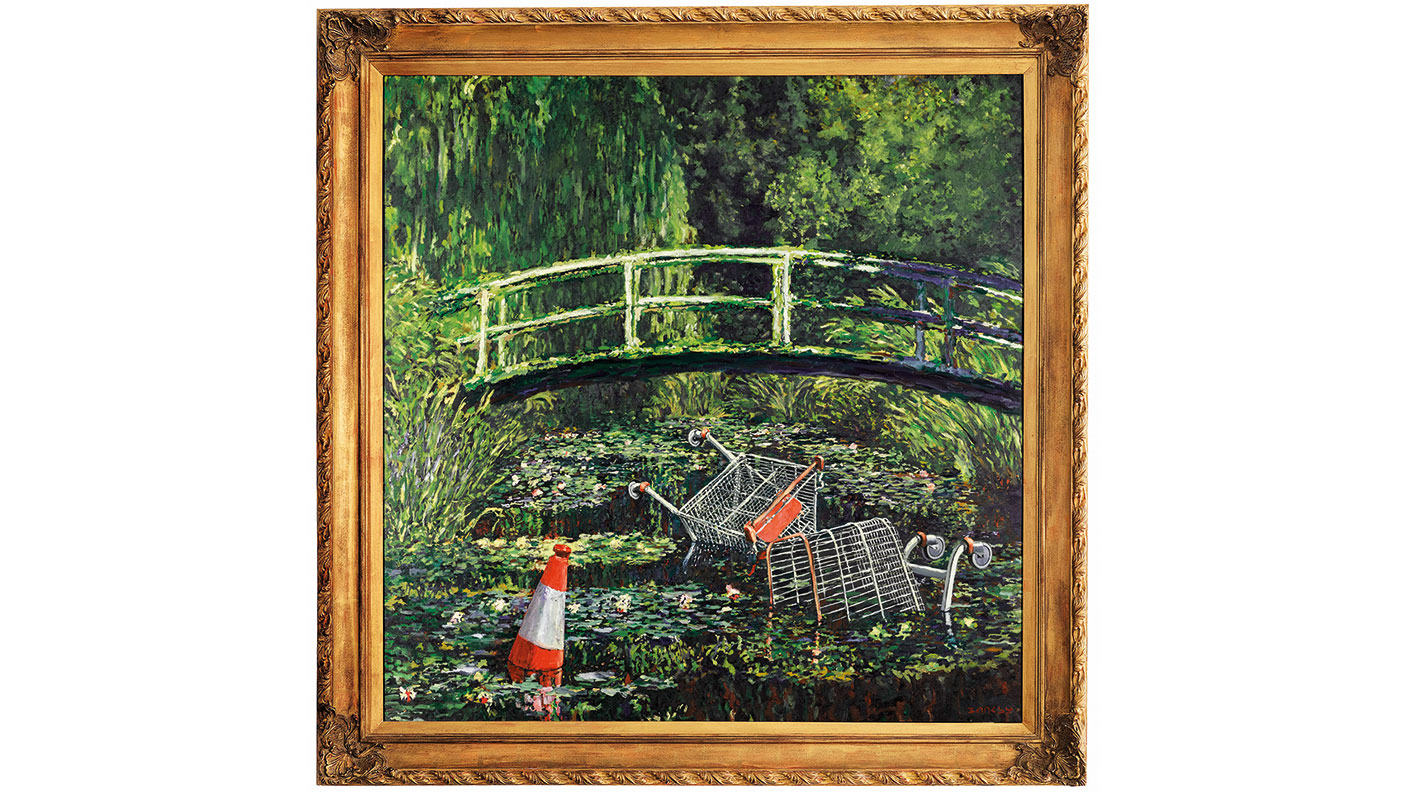
Get the latest financial news, insights and expert analysis from our award-winning MoneyWeek team, to help you understand what really matters when it comes to your finances.
You are now subscribed
Your newsletter sign-up was successful
Want to add more newsletters?
Judging by how fast If You Don’t Mask, You Don’t Get, a mural of disinfectant-wielding rats, was scrubbed from the inside of a Tube train in July, you might suppose Transport for London is not a fan of Banksy. If so, that would put it in a minority.
Auction houses Christie’s and Sotheby’s have both held online sales of the anonymous artist’s prints this month. Every lot in the Sotheby’s sale smashed its estimate, including the most expensive, Girl with Balloon (2004), which sold for £438,500. Christie’s raised a total of £2.1m from the sale of its 21 lots last week. Again, Girl with Balloon (this time with a purple instead of a red balloon) fetched the highest price, at £791,250. But the real show-stopper is yet to come.
Updating Monet
On 21 October, Show me the Monet will go under the hammer at Sotheby’s in London. “Banksy has taken Monet’s iconic depiction of the Japanese bridge in the Impressionist master’s famous garden at Giverny and transformed it into a modern-day fly-tipping spot,” explains Alex Branczik, Sotheby’s head of contemporary art, Europe. “More canal than idyllic lily pond, Banksy litters Monet’s composition with discarded shopping trollies and a fluorescent orange traffic cone.” It is, says Branczik, a comment on “society’s disregard for the environment in favour of the wasteful excesses of consumerism”.
Try 6 free issues of MoneyWeek today
Get unparalleled financial insight, analysis and expert opinion you can profit from.

Sign up to Money Morning
Don't miss the latest investment and personal finances news, market analysis, plus money-saving tips with our free twice-daily newsletter
Don't miss the latest investment and personal finances news, market analysis, plus money-saving tips with our free twice-daily newsletter
Speaking of wasteful consumerism, the painting comes with a high estimate of £5m, but it has been tipped to break the current record for a Banksy work of £9.9m (including fees), set by Devolved Parliament (2009), a painting of chimpanzees sitting on the famous green benches, last October. Pop star and art collector Robbie Williams is “a major player in a syndicate” to buy it, Simon Boyle reveals in The Sun.
“The irony that The Establishment has embraced his anti-capitalist and anti-authoritarian art is not lost on Banksy”, says Christie’s specialist James Baskerville. In his screenprint Morons (2007), of which two sepia versions sold for £60,000 this month at Christie’s and Sotheby’s, Banksy parodies a photograph from 1987 of an auctioneer selling Vincent van Gogh’s Sunflowers. But instead of the flowers, the artist has written “I can’t believe you morons actually buy this shit”.
That the price of this sepia version has almost doubled since an edition fetched £32,500 just last September is a pretty good reason to believe it. And Banksy knows that too – or so it would seem. As Benjamin Sutton notes on Artsy, “Banksy’s public image as an irreverent, globetrotting trickster is sometimes at odds with his very concerted efforts to control the market for his work” (see right).
In any case, the market “shows no signs of slowing”. That is saying something when you consider that auction sales have been forced online and have been suffering since lockdown. But Covid-19 restrictions cramped neither Banksy’s creativity on the London Underground this summer nor the Banksy economy. Perhaps nothing can.
The cost of anonymity
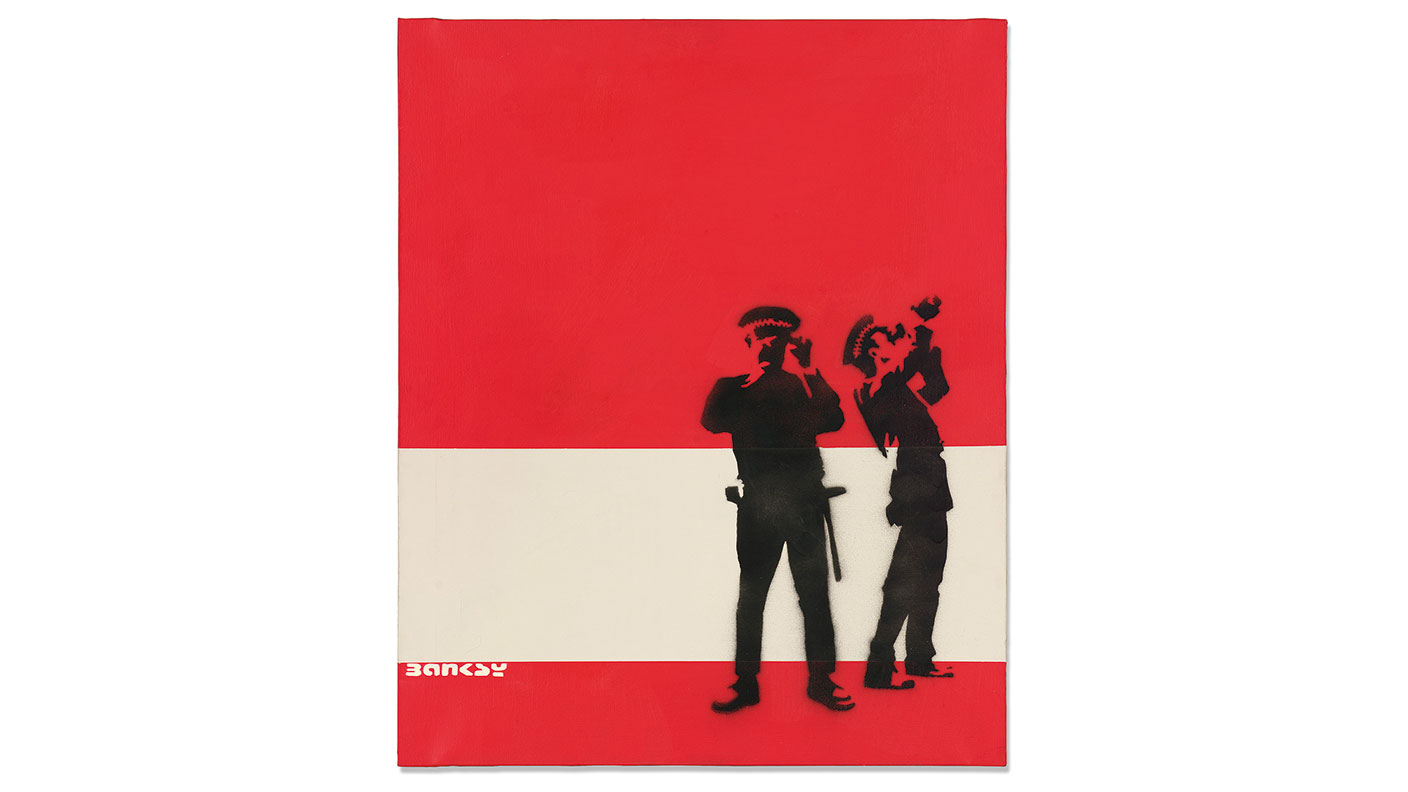
Banksy has been creating artworks for sale since the 1990s. “In the beginning, Banksy didn’t create prints to make money and they were sold for such low prices”, says James Baskerville, a prints and multiples specialist at Christie’s. “People were buying the art on their credit cards as if it was a poster, with no awareness of its future value.” He cites the example of Avon and Somerset Constabulary (Red and White) from 2000, which was bought from Banksy’s exhibition at Severnshed restaurant in Bristol that year. “Works in the show cost less than £1,000.” The work is now for private sale at Christie’s – for presumably a lot more. Importantly, it also comes with a certificate of authenticity.
As Banksy’s fame grew, fakes began to appear in the market. So, in 2008, Banksy set up Pest Control to authenticate his works. “If you’re unsure about your certificate, show it to a specialist who can advise you”, says Baskerville. “Or contact Pest Control directly.” But, time (and success) makes fools of us all. Despite Banksy having once stated (on a wall) that “copyright is for losers”, Pest Control successfully applied for a European Union trademark on Banksy’s mural of the “flower thrower” (Love is in the Air) in Bethlehem.
But then last month, after a two-year dispute involving a greeting-card company, the European Union Intellectual Property Office (EUIPO) ruled against the artist because he could not be identified as the unquestionable owner of such works, says The Guardian. Anonymity comes at a price.
Auctions
Going…
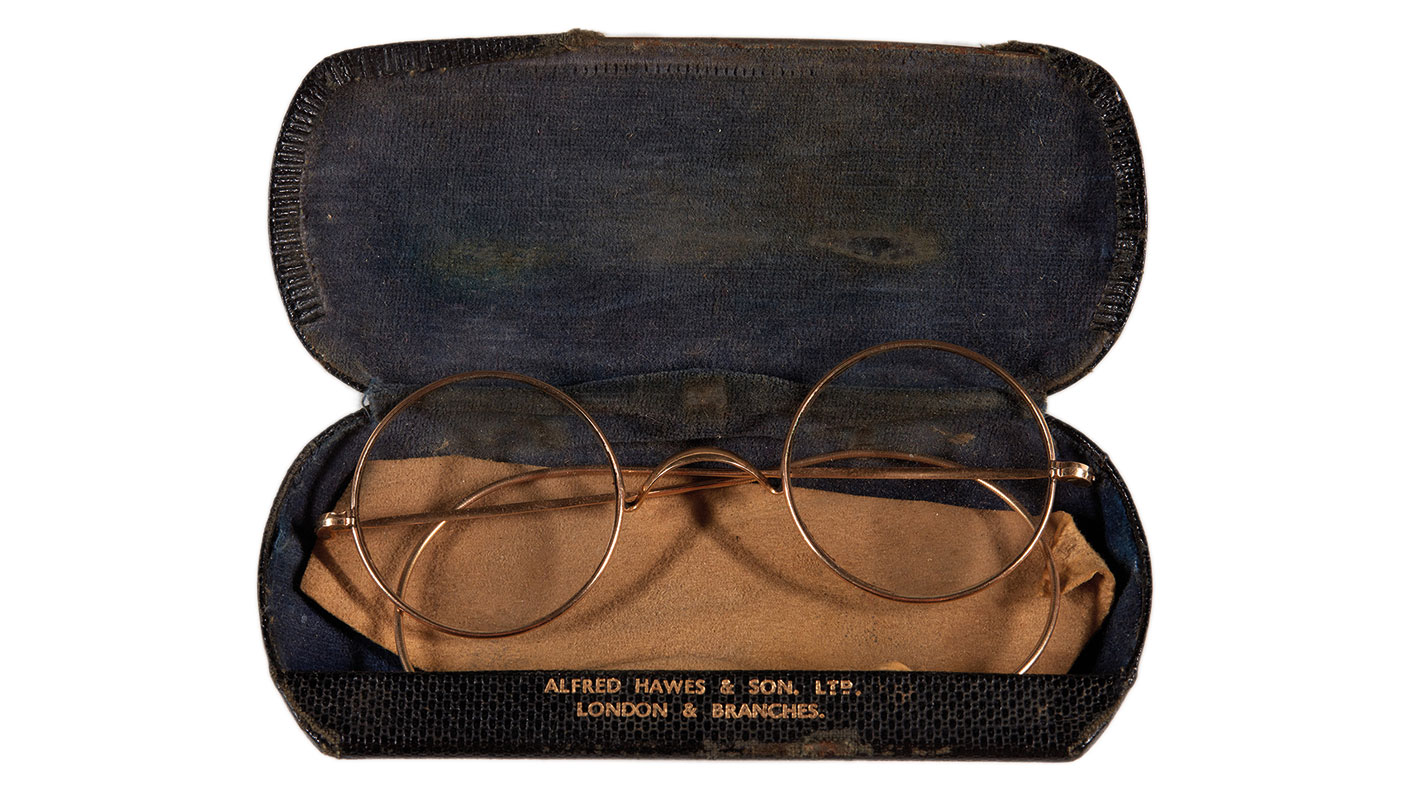
During the Swinging Sixties, Brian Epstein’s little black book “could open almost any door as the unofficial fifth Beatle cultivated contacts that would help take the band to worldwide fame and acclaim”, says David Sanderson in The Times. That 1967 address book, featuring names such as Billy Fury and Marianne Faithfull, was expected to fetch at least £6,000 with Sotheby’s yesterday. The women’s Cartier watch Epstein used to keep track of the notoriously tardy band members was expected to sell for up to £25,000, and a pair of John Lennon’s signature Windsor round glasses for up to £40,000. They “may well be” the first pair Lennon owned of that type after he stopped wearing contact lenses in 1966.
Gone…
A rare demo CD produced by pop star Ed Sheeran in 2005, when he was a teenager, sold for £50,000 (hammer price) at Merseyside-based Omega Auctions last month. The auction house called it an “important artefact in contemporary music history”. Sheeran would rather it had remained buried. “There are probably 20 copies of Spinning Man in existence, and I have 19 of them”, he wrote in his book Ed Sheeran: A Visual Journey. “I don’t want anyone else to get hold of a copy! Most of the songs were about a girl called Claire. She was my first love when I was 13.” In fact, 21 copies of the recording are known to exist, says BBC News. The copy that was sold belonged to someone who worked in the music industry in Ireland and whose brother decided to sell it.
Get the latest financial news, insights and expert analysis from our award-winning MoneyWeek team, to help you understand what really matters when it comes to your finances.

-
 Financial education: how to teach children about money
Financial education: how to teach children about moneyFinancial education was added to the national curriculum more than a decade ago, but it doesn’t seem to have done much good. It’s time to take back control
-
 Investing in Taiwan: profit from the rise of Asia’s Silicon Valley
Investing in Taiwan: profit from the rise of Asia’s Silicon ValleyTaiwan has become a technology manufacturing powerhouse. Smart investors should buy in now, says Matthew Partridge
-
 Where to look for Christmas gifts for collectors
Where to look for Christmas gifts for collectors“Buy now” marketplaces are rich hunting grounds when it comes to buying Christmas gifts for collectors, says Chris Carter
-
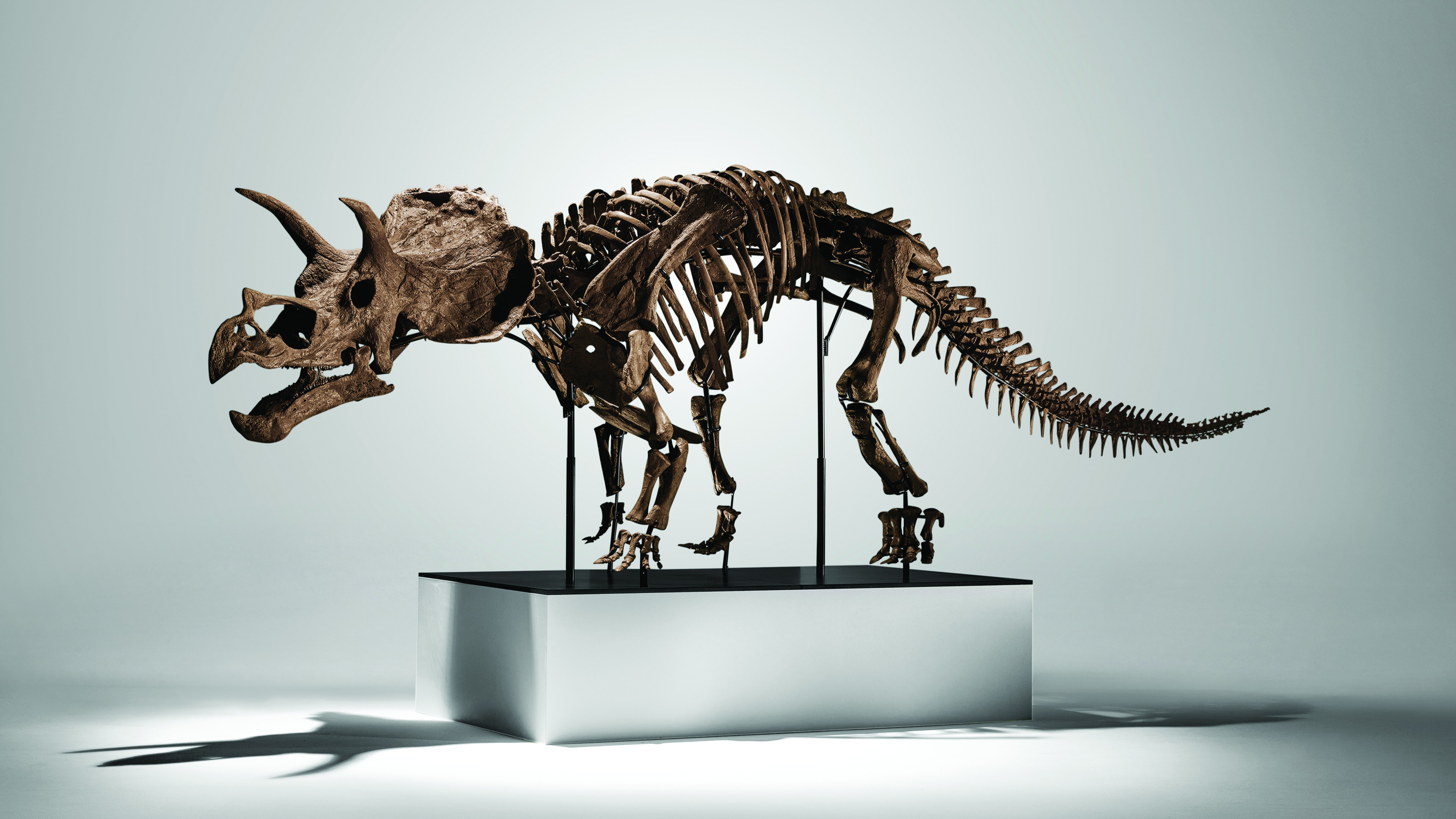 How dinosaur fossils became collectables for the mega-rich
How dinosaur fossils became collectables for the mega-richDinosaur fossils are prized like blue-chip artworks and are even accelerating past the prices of many Old Masters paintings, says Chris Carter
-
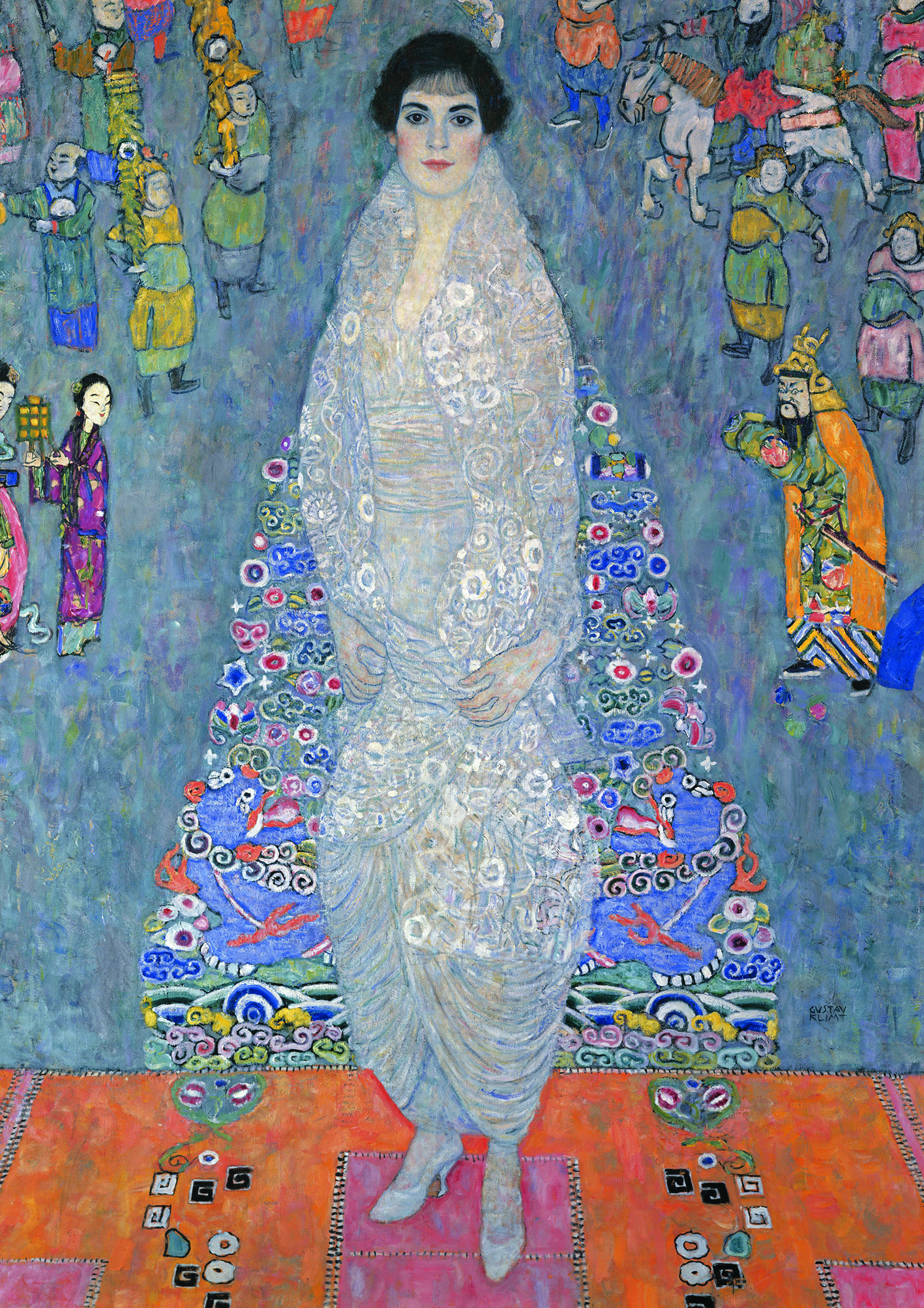 Sotheby’s fishes for art collectors – will it succeed?
Sotheby’s fishes for art collectors – will it succeed?Sotheby’s is seeking to restore confidence in the market after landing Leonard Lauder's art collection, including Gustav Klimt's Portrait of Elisabeth Lederer
-
 Halifax: House price slump continues as prices slide for the sixth consecutive month
Halifax: House price slump continues as prices slide for the sixth consecutive monthUK house prices fell again in September as buyers returned, but the slowdown was not as fast as anticipated, latest Halifax data shows. Where are house prices falling the most?
-
 Rents hit a record high - but is the opportunity for buy-to-let investors still strong?
Rents hit a record high - but is the opportunity for buy-to-let investors still strong?UK rent prices have hit a record high with the average hitting over £1,200 a month says Rightmove. Are there still opportunities in buy-to-let?
-
 Pension savers turn to gold investments
Pension savers turn to gold investmentsInvestors are racing to buy gold to protect their pensions from a stock market correction and high inflation, experts say
-
 Where to find the best returns from student accommodation
Where to find the best returns from student accommodationStudent accommodation can be a lucrative investment if you know where to look.
-
 The world’s best bargain stocks
The world’s best bargain stocksSearching for bargain stocks with Alec Cutler of the Orbis Global Balanced Fund, who tells Andrew Van Sickle which sectors are being overlooked.